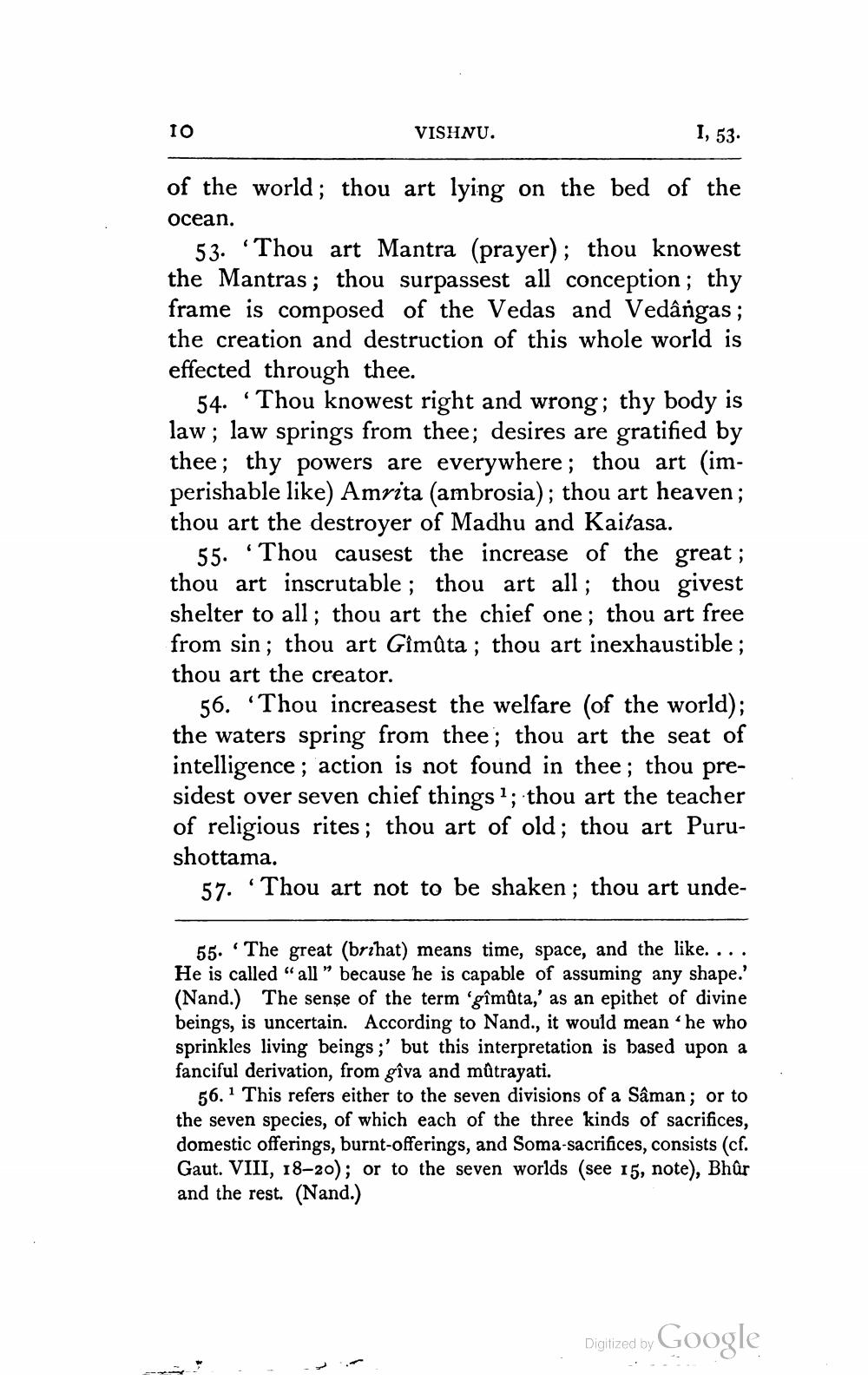________________
10
VISHNU.
1, 53.
of the world; thou art lying on the bed of the ocean.
53. “Thou art Mantra (prayer); thou knowest the Mantras; thou surpassest all conception; thy frame is composed of the Vedas and Vedângas; the creation and destruction of this whole world is effected through thee.
54. 'Thou knowest right and wrong; thy body is law; law springs from thee; desires are gratified by thee; thy powers are everywhere; thou art (imperishable like) Amrita (ambrosia); thou art heaven; thou art the destroyer of Madhu and Kaitasa.
55. “Thou causest the increase of the great ; thou art inscrutable; thou art all; thou givest shelter to all; thou art the chief one; thou art free from sin; thou art Gimâta ; thou art inexhaustible; thou art the creator.
56. “Thou increasest the welfare (of the world); the waters spring from thee; thou art the seat of intelligence; action is not found in thee; thou presidest over seven chief things ?; thou art the teacher of religious rites; thou art of old; thou art Purushottama.
57. “Thou art not to be shaken ; thou art unde
55. The great (brihat) means time, space, and the like. ... He is called "all” because he is capable of assuming any shape.' (Nand.) The sense of the term 'gîmůta,' as an epithet of divine beings, is uncertain. According to Nand., it would mean ‘he who sprinkles living beings;' but this interpretation is based upon a fanciful derivation, from gîva and můtrayati.
56. 1 This refers either to the seven divisions of a Sâman; or to the seven species, of which each of the three kinds of sacrifices, domestic offerings, burnt-offerings, and Soma-sacrifices, consists (cf. Gaut. VIII, 18-20); or to the seven worlds (see 15, note), Bhûr and the rest. (Nand.)
Digitized by Google




